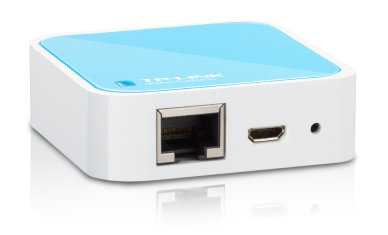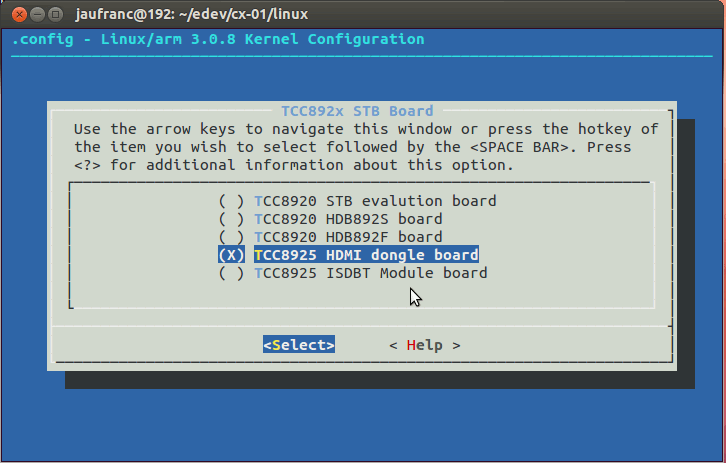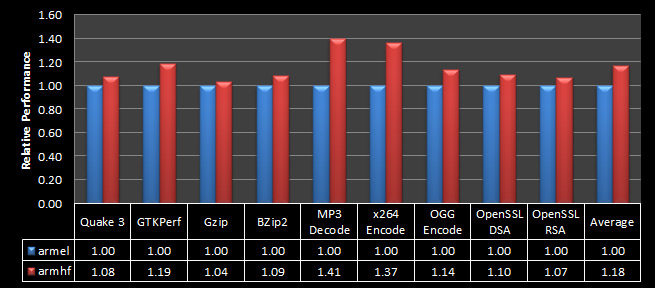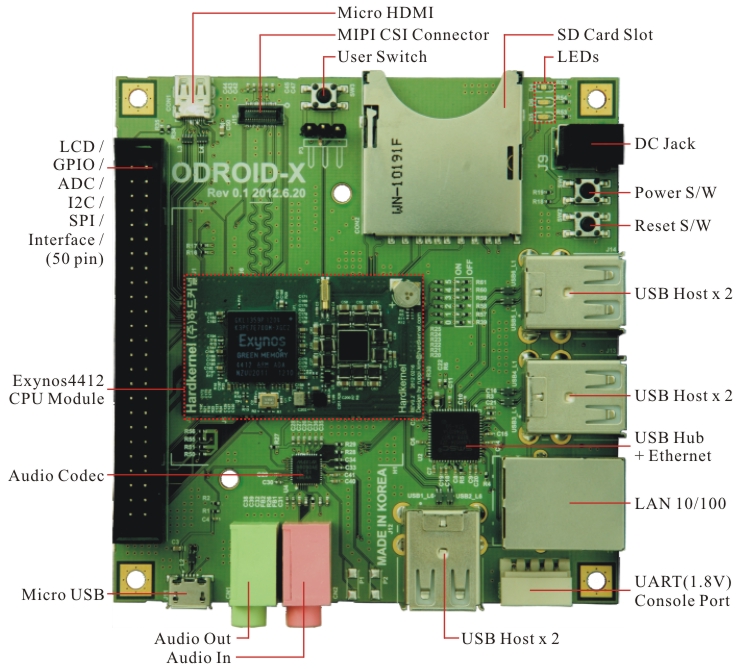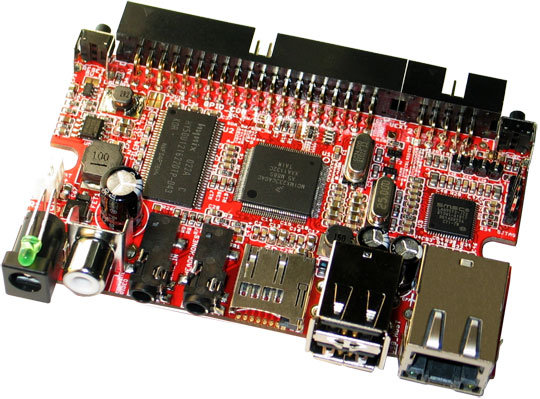Kent of SCUZ Technologies has graciously provided a build machine (Intel Xeon E5645) for Rhombus Tech (and possibly other) open source projects, and I’ve setup nightly build scripts for AllWinner A10 kernel, bootloader (u-boot) and hardware packs for Mele A1000 (HDMI), Mele A1000 (VGA), A10 mini PCs (using MK802 script.bin) as well as a server build for Mele A1000. The nightlies are built using a10-hwpack-bld.sh script which is available in github, and can be downloaded from http://dl.linux-sunxi.org/nightly/ The resulting files are copied to a dropbox folder, until a better solution is found. For each build, you’ll find the following files : u-boot.bin – U-boot sun4i-spl.bin – U-boot SPL uImage – Kernel image product_YYYY.MM.DD.log (e.g. mele-a1000_2012.07.20.log) – The build logs whether the build succeeds of fails. One per hardware pack. product_hwpack_YYY.MM.DD.log ( e.g. mele-a1000_hwpack_2012.07.20.7z) – The hardware pack with the kernel, u-boot which can be used with a1x-media-create.sh script to create […]
TP-Link WR703N – $23 Hackable openWRT Wi-Fi 802.11N Router
TP-Link WR703N is a tiny 802.11N 150 Mbps Wi-Fi router smaller than a credit card (5.7 x 5.7 cm) and 1.8 cm thick based on Atheros AR7240 processor with 4 MB flash and 32 MB RAM. It costs just above $20 US and can be hacked with openWRT. It features one USB host connector that allows you to connect USB devices (USB flash drive, printer…) to it. TL-WR703N Specifications: Atheros AR7240 CPU @ 400Mhz (MIPS24k core) Atheros AR9331 Chipset (integrated wireless) 10/100 Mbit Ethernet port 802.11 b/g/n 150Mbps 3G support via external USB dongle 4 MB flash memory 32 MB RAM USB 2.0 port micro-USB port for power Dimension – 5.7 x 5.7 x 1.8 cm All you need is a USB to TLL board to access the serial console, open the box to access the serial pins (TP_IN and TP_OUT) and follow the instructions on openWRT website to convert […]
Building the Linux Kernel 3.0.8 For Telechips TCC8925 mini PCs (CX-01, Z900, TizzBird N1…)
Yesterday, we got Linux kernel 3.0.8 source code from Telechips, as well as some files related to Android 4.0 (Webkit + OMX). Today, I’ve had a look at the kernel source code and found a few very interesting things. First let’s get the code from github:
|
1 |
git clone git://github.com/cnxsoft/telechips-linux.git |
Good news! The code for the latest Telechips TCC892X is present in arch/arm/mach-tcc892x, and there is support for 3 types of boards: board-m805_892x – TCC8923 M805 board board-tcc8920 – TCC8920 evaluation board board-tcc8920st – TCC8920 STB evaluation board TCC8920 STB evaluation board appears to be relevant to products such as Diyomate A6, but if it’s also used for TCC8925 HDMI Dongle such as CX-01 mini PC, Zero Devices Z900 or ValuePlus TizzBird N1. Now let’s have a look at the default config directory for arm (arch/arm/configs):
|
1 2 3 4 5 6 7 8 |
ls | grep tcc89 tcc8920st_defconfig tcc8920st_hdb892s_defconfig tcc8925st_dongle_defconfig tcc8925st_donglehs_defconfig tcc8925st_hdb892f_defconfig tcc8925st_isdbt_module_defconfig tcc892x_defconfig |
Nice! tcc8925st_dongle_defconfig and tcc8925st_donglehs_defconfig look particularly interesting! A quick comparison shows that the only difference is […]
Raspberry Pi Releases Raspbian SD Card Image Based on Debian Wheezy ARMHF
The Raspberry Pi foundation announced the very first stable release of the Raspbian distribution, which is based on Debian 7.0 “Wheezy” armhf rootfs in order to take advantage of the FPU in Broadcom BCM2835. This distribution offers up to 40% performance improvement on several tasks, and for some specific tasks such as MP3 encoding is can boost the speed by nearly 6 times thanks to hard-float support. It is now the recommended distribution for the Raspberry Pi, runs LXDE environment, and comes with Midori browser, development tools and example source as per the previous Debian distros. omxplayer by gimli (XBMC developer) is also pre-installed in the image, and will allow you to play videos using hardware acceleration. You can download Raspbian via: Bittorrent – 2012-07-15-wheezy-raspbian.zip.torrent HTTP – 2012-07-15-wheezy-raspbian.zip The default credentials are pi / raspberry. Adam Armstrong has run some benchmarks to compare Raspbian (armhf) with the previous Raspberry Pi […]
Telechips Releases Linux Kernel 3.0.8 and Android ICS Source Code
Telechips has just uploaded the GPL source code for kernel 3.0.8 and Android 4.0 to the open source section of their website. If downloading from telechips website is too slow, you can also try alternate downloads (Thanks Gabe!): Kernel-3.0.8.tar.gz Ics.tar.gz I’ve also created 2 repositories in github: telechips-linux – Linux kernel source code telechips-android – Android platform open source code (webkit + OpenMAX source code) It haven’t looked into the source code in details yet, but hopefully, this will allow developers to customize the firmware running on Telechips TCC8925 based mini PCs such as CX-01 mini Android TV Box or Zero Devices Z900. Jean-Luc Aufranc (CNXSoft)Jean-Luc started CNX Software in 2010 as a part-time endeavor, before quitting his job as a software engineering manager, and starting to write daily news, and reviews full time later in 2011. www.cnx-software.com
HardKernel ODroid-X: Low Cost Exynos 4412 Quad Core Cortex A9 Development Board
HardKernel unveiled the ODROID-X development board based on Samsung Exynos 4412 quad-core ARM Cortex-A9 with quad core Mali-400 GPU, 1 GB Low Power DDR2 and storage is done via SD card and/or eMMC flash. Here are ODROID-X development board specifications: Processor Samsung Exynos4412 Cortex-A9 Quad Core 1.4Ghz with 1MB L2 cache Memory 1024MB(1GB) LP-DDR2 800MB/s data rate GPU Quad Core Mali-400 Video supports 1080p via HDMI cable (H.264+AAC based MP4 container format) Video Out micro HDMI connector / RGB-24bit LCD interface port Audio Standard 3.5mm headphone jack and microphone jack HDMI SPDIF LAN 10/100Mbps Ethernet with RJ-45 Jack (Auto-MDIX support) USB2.0 Host High speed standard A type connector x 6 ports USB2.0 Device ADB/Mass storage(Micro USB) UART System console monitoring for development (1.8volt interface) IO PORTs 50pin IO expansion port for LCD/I2C/UART/SPI/ADC/GPIO interfaces Display (Option) HDMI monitor / LCD panel with RGB or LVDS interface Storage (Option) Full size SDHC […]
Olimex Offers Up to 50% Discount on OLinuXino Boards to Open Source Developers
Olimex has been providing low cost MCU devkits for many years, and this year they started offering more powerful embedded Linux development boards called OLinuXino. The first family (iMX233-OLinuXino) is based on Freescale i.MX233 ARM9 processor @ 454 Mhz and comes in three form factor: iMX233-OLINUXINO-MAXI – 2x USB host, Ethernet, TV-out, GPIOs, SD-CARD, Audio-In, Audio-Out, UEXT – 44.95 Euros. iMX233-OLINUXINO-MINI – 3x USB host, TV-out, GPIOs, SD-CARD, Audio-In, Audio-Out, UEXT – 34.95 Euros iMX233-OLINUXINO-MICRO – USB host, TV-out, GPIOs, SD-CARD, ready for breadboaring – 23.95 Euros They are also working on A13-OLinuXino board featuring AllWinner A13 Cortex A8 processor. To promote their new boards (and reward open source developers – cf comment below), the company company has decided to offer discount to open source developers. The way I understand it: you need to buy a board first, publish the source code somewhere and write about it on your own […]
Quick Binary Debugging in Linux with Strace System Call Tracer
I’ve recently come across strace, a debugging utility for Linux that “monitor the system calls used by a program and all the signals”. It may not be that useful if you have the source code and can run other debugging tools such as gdb, or simply add printf to your code. But if you don’t have source code of the program, or you are a system administrator who wants to check if the program fails due to file access reasons, for example, this is really a great tool as it may help you find out which file causes problem. In my case, I was trying OpenGL ES on an ARM platform, and at least part of the code comes in libraries that are only available in binary form. I got the following error message running es2_info (part of mesa-utils-extra): UMP: ump_arch_open() failed to open UMP device driver ********************************************************************* ERROR: In […]



